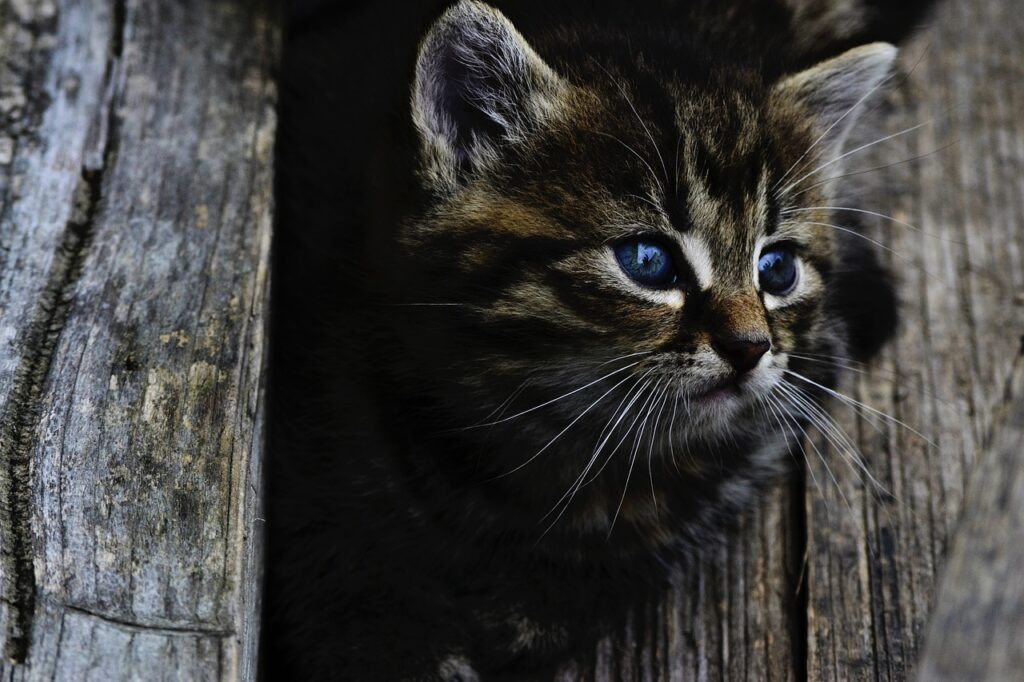Can Cats Eat Fruit? – No, They can’t
As a general rule, cats should not eat fruit. Cats are obligate carnivores, which means their bodies are designed to digest and use only animal-based proteins. While an occasional fruit treat in minuscule amounts might not harm your feline friend, their gastrointestinal tract is not equipped to break down the sugars and acids in fruits efficiently. Plus, some fruits can even be toxic to cats, so it’s essential to know which ones are safe and which to avoid entirely.
Can Kittens Eat Fruit?
No, kittens should not eat fruit. Their digestive systems are even more sensitive than adult cats. As kittens are in the critical stage of growth and development, it’s crucial to adhere to a diet that consists of high-quality kitten food specifically formulated for their nutritional needs. This ensures they receive the right balance of proteins, vitamins, and minerals without the potential digestive upset that fruit could cause.
Things to consider when feeding fruit to kittens?
When considering your kitten’s diet, think about their nutritional requirements, the risk of choking from small, hard pieces of fruit, and possible allergic reactions. Any dietary experimentation with kittens should be under a veterinarian’s guidance to avoid jeopardizing their health.
Nutritional Benefits of Fruit for Cats – Why Fruit is good for Cats?
Fiber
Some fruits contain fiber, which can aid digestion in cats. However, the amount needed is already present in high-quality commercial cat foods, making additional fruit unnecessary.
Vitamins
Fruits are a good source of vitamins, but cats synthesize many vitamins such as vitamin C on their own, and commercial foods are designed to cater to their specific nutritional needs.
Antioxidants
Antioxidants in fruits could help combat free radicals in cats, but there are safer and more appropriate ways to provide these benefits without the risk that comes with feeding fruit.
Water Content
Some fruits have high water content which can aid in hydration. However, cats get most of their moisture from their food, especially if they eat canned or wet food diets.
Phytonutrients
Phytonutrients in fruits may reduce inflammation and help to prevent disease. While this is beneficial, the potential risks and the fact that cats may not efficiently process these nutrients outweigh this benefit.
Potential Allergies: Can Cats Be Allergic to Fruit?
It’s rare, but cats can develop allergies to almost any food, including fruits. If introducing fruit to a cat’s diet, it should be done gradually and with caution to watch for adverse reactions.
Symptoms of Fruit Allergies in Cats
- Itching or Skin Irritation: If your cat starts scratching more than usual or develops a rash following fruit consumption, it could indicate an allergy.
- Vomiting or Diarrhea: Gastrointestinal upset is a common sign of allergies in cats.
- Respiratory Issues: Coughing or wheezing can sometimes occur if a cat is allergic to something they’ve eaten.
What to Do If Your Cat Shows Symptoms?
- Discontinue Feeding Fruit: Immediately stop feeding your cat the fruit and observe if symptoms improve.
- Consult Your Veterinarian: Discuss with your vet about your cat’s reaction to fruit for appropriate next steps or treatment.
- Switch Back to Regular Diet: Return to feeding your cat their regular diet that you know is safe.
Recommended Amount: How Much Fruit Can a Cat Consume?
In general, cats should not consume fruit as part of their regular diet. If, for any reason, a cat must eat fruit, it should be a very small piece and only on rare occasions, ensuring it is a fruit safe for cats.
Things to Consider When Feeding Fruit to Cats
Before feeding cat fruit, consider the size of the piece (it should be tiny), the type of fruit (avoid grapes, raisins, and citrus), and the frequency (very occasionally).
How to Feed Fruit to Cats: A Quick Guide
Fruit should not be a staple in a cat’s diet, but if you are determined to share a fruity treat with your pet, it should be in a form that is safe and appealing to them.
A Tiny Nibble of Melon
Offer a small cube of cantaloupe or watermelon, ensuring it is seedless and free of rind.
Berry Little Treat
Provide a single blueberry or a small slice of strawberry as an occasional treat.
Apple Bite (Rarely)
A tiny sliver of apple can be offered, but ensure it’s peeled and free from seeds and core.
Conclusion
While cats may be curious about fruit, it is not a recommended part of their diet, and most fruits offer no real benefits for them. Always prioritize your cat’s health and consult with your veterinarian before introducing any new foods into their diet. Remember, when it comes to our feline friends, it’s better to stick to the foods that cater to their carnivorous nature.



